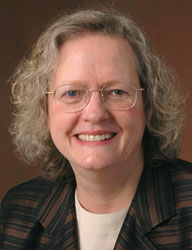Deans’ Message
According to the American Cancer Society, nearly 600,000 Americans are expected to die of cancer in 2016 — the second most common cause of death in the U.S. Zheng Ouyang, professor in Purdue’s Weldon School of Biomedical Engineering, Department of Chemistry and School of Electrical and Computer Engineering, and his team of researchers have developed a new analytical tool for medical applications and biological research that shows promise for diagnosing cancer more rapidly than conventional methods. The research has implications for the field of lipidomics, which involves the identification and quantification of cellular lipid molecules, how they interact with other components in cells, and their role in biological systems.
David Cappelleri, assistant professor of mechanical engineering, and his research team have developed a system for controlling tiny robots, or “microbots” with individual magnetic fields from an array of miniature planar coils. The technology is likened to “mini force fields” to independently control individual microrobots operating within groups, an advance aimed at using the tiny machines in areas from manufacturing to medicine. These microbots are equipped with probe-like “force sensors” that could be used to detect cancer cells in a biopsy.
A preeminent team led by Carl Wassgren, professor of mechanical engineering, is advancing research on particulate structures and manufacturing techniques. Their focus is on developing models for predicting how powders flow, mix, break and compact and applying these models to improve the performance of industrial processes used to manufacture a wide range of particle-based products, including pharmaceutical tablets, powdered detergents, catalysts, agrochemicals and foodstuffs.
Research isn’t limited to faculty and graduate students, however. Through the Summer Undergraduate Research Fellowship (SURF) program, undergrads have an opportunity to tackle complex research projects with extraordinary faculty advisors. We take a look at two young women who are contributing to new discoveries in biomedicine and robotics.
And finally, Rolls-Royce and Purdue University are combining resources to form a $33 million jet-engine research and development program to create next-generation aircraft propulsion systems. The funding will support research and technology development in thermal management for advanced propulsion systems, compressor and turbine technology, and analytical methods. Nicole Key, associate professor of mechanical engineering, is part of a team that will both explore future engine designs and conduct fundamental research on propulsion.
We are pleased to share these and more stories with you. To learn more about the research being done in the College of Engineering, please follow me on Twitter: @LeahHJamieson

The John A. Edwardson Dean of Engineering
Ransburg Distinguished Professor of Electrical and Computer Engineering

Associate Dean of Engineering for Research
Professor of Agronomy, Civil, and Electrical and Computer Engineering
Chair of Excellence in Earth Observation
Discovery: Innovation@Purdue Engineering, is a Purdue College of Engineering publication that focuses on advances in research. The quarterly e-publication features recent research achievements in the College and highlights faculty and student research, including collaborations with international partners. Significant initiatives in engagement with industry and in translating research to practice will also be spotlighted.